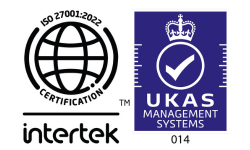Ensuring a company is compliant with HM Revenue and Customs (HMRC) regulations is critical for both businesses and employees. HMRC compliance covers a wide range of obligations, including accurate tax payments, adherence to employment laws, and proper record-keeping. The payroll experts at PayEscape have put together a guide on how to verify company compliance effectively:
1. Check for proper registration with HMRC
All UK businesses must register with HMRC for tax purposes. This includes registration for Corporation Tax, VAT (if applicable), and PAYE (Pay As You Earn) for employees. Failure to register can result in penalties. Employers should also provide employees with a Unique Taxpayer Reference (UTR) and National Insurance records.
How to verify: Request proof of UTR and PAYE scheme registration. Cross-reference these details with HMRC records.
2. Assess payroll practices
Compliant companies must accurately calculate and report PAYE tax and National Insurance contributions. This requires using HMRC-recognised software to ensure proper deductions and timely submissions.
Key requirements:
- Monthly submissions through Real-Time Information (RTI).
- Issuance of payslips detailing gross pay, deductions, and net pay.
- Compliance with minimum wage and statutory leave laws.
Companies using HMRC-compliant payroll providers like PayEscape can often demonstrate greater reliability in these processes.
3. Review tax filing and payment records
Businesses must file accurate tax returns and pay taxes on time. Late or incorrect submissions can result in penalties or increased scrutiny from HMRC. Corporate entities should maintain proper accounts, while self-employed individuals must comply with Self-Assessment requirements.
Evidence to seek:
- Copies of recent tax filings.
- Confirmation of payment receipts from HMRC.
What happens if a company is non-compliant?
HMRC can impose fines, interest on unpaid taxes, and even legal action. Persistent non-compliance may lead to business closure.
Can you confirm HMRC compliance directly?
Yes, HMRC can provide limited verification about a business’s compliance status if approached by authorised parties.
How does PayEscape help with HMRC compliance?
PayEscape’s integrated payroll and HR solutions ensure accurate calculations, automatic tax submissions, and comprehensive reporting, minimising compliance risks.
Cloud-Based Payroll Software
Cloud-based payroll software operates by utilising cloud computing technology.
Managed Payroll Services
Opt for a fully managed payroll service by outsourcing the entire payroll process to PayEscape
Integrated HR and Payroll
PayEscape’s integrated HR and payroll software combines powerful HR functionality with robust payroll capabilities.
Need help to understand what solution is best for your business?
Speak with our expert team today on 028 2764 1060
4. Evaluate compliance with employment legislation
Companies must adhere to employment laws, including providing statutory benefits such as maternity leave, adoption leave, and statutory sick pay. Non-compliance may signal broader HMRC issues.
Indicators:
- Employment contracts outlining entitlements.
- Adherence to statutory pay thresholds.
- Proper classification of employees versus contractors.
5. Understand VAT obligations
If a business meets the VAT threshold (£85,000 annual turnover), it must register for VAT and submit quarterly VAT returns. Mismanagement of VAT obligations can lead to investigations.
Verification:
- Check for a VAT registration number.
- Request recent VAT return filings for confirmation.
6. Review tax compliance checks
HMRC conducts compliance checks to ensure businesses are meeting obligations. These reviews may involve examining tax returns, PAYE records, and VAT accounts.
What to ask:
- Has the business undergone a compliance check recently?
- Were any issues identified, and how were they resolved?
Businesses can appeal HMRC decisions if they disagree with findings, demonstrating a commitment to transparent operations
7. Check for transparent Governance
HMRC’s “co-operative compliance” framework for large businesses promotes openness in tax planning and governance. While this applies primarily to large corporations, smaller businesses should also demonstrate transparency.
Best practices include:
- Transparent communication with tax agents and HMRC.
- Clear records of financial transactions aligned with business activities
8. Request Accreditation from HMRC or External Auditors
Certain industries or large companies may voluntarily undergo external audits to prove compliance. Ask for any certifications or letters of assurance from HMRC or other regulatory bodies.
Choose a payroll provider
By partnering with PayEscape you can rest your mind at ease knowing that we are HMRC compliant and BACs approved. Get in touch with a member of a team today below to find out more. Remember staying informed and vigilant ensures you or your business avoids risks associated with non-compliance. For further details, explore HMRC’s tax compliance guidelines and co-operative compliance framework.
Using our cloud-based software we manage all aspects of your payroll process. From calculating your payroll taxes and filing with HMRC to managing all components of auto enrolment and so much more. Whether it’s reimbursement or pre-tax benefits we’ve got it covered.
Our HR platform lets you manage all aspects of your HR administration. With HR Escape can approve and monitor holiday, record working time and calculate wages, allocate time and staff expenses to clients, projects, and activities, and much more.
Book your free demo now.
Need help to understand what solution is best for your business? Speak with our expert team today on 028 2764 1060
"*" indicates required fields

















